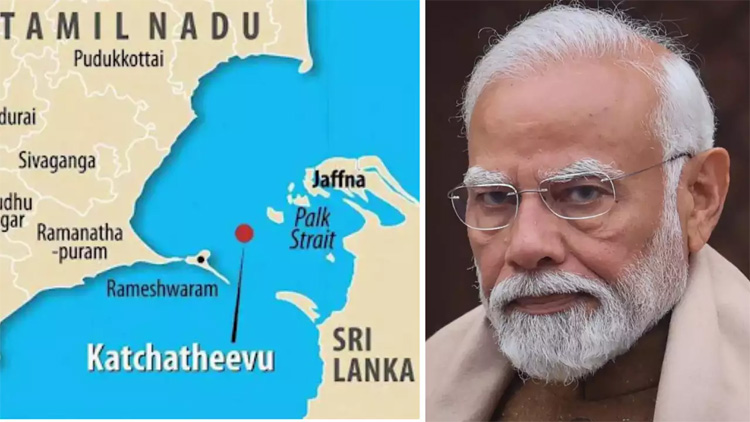Operation TN: With Katchatheevu, BJP sets its narrative in the Dravidian fortress
Before the 2014 general elections, the Bharatiya Janata Party (BJP), which had then been in the opposition for 10 years, began to explore ways of changing the party’s response to political developments and governance issues.
Backed by its ideological beacon, the Rashtriya Swayamsevak Sangh, a section of BJP leaders pushed for setting the narrative and coercing the opposition to respond.
In the past decade, this policy of setting the narrative and pursuing it aggressively has helped the party emerge as a hegemon in the politically crucial ‘Hindi belt’ and helped force its way into the political discourse in regions where it has tasted little or no electoral success, for instance Southern India.
Except Karnataka, where it has been in power multiple times, the party has been chipping away at the barriers that prevented its expansion in Tamil Nadu, Telangana, Andhra Pradesh and Kerala.
Having sniffed an opportunity in Tamil Nadu, the BJP has assiduously been wooing people with the promise of development. It has used the tried and tested formula of Hindutva to coalesce different castes and is now invoking regional and national pride.
The party’s no-holds-barred campaign to blame the Congress-led UPA governments and the Dravida Munnetra Kazhagam (DMK), which is in power in Tamil Nadu, for the transfer of the Katchatheevu Island to Sri Lanka is part of its now established policy of setting the agenda and trying to be at the centre of the political discourse.
Leading this campaign, Prime Minister Narendra Modi took to social media platform ‘X’ to speak about the transfer of the island, spanning 1.6 km in length and 300 mts in breadth, and was unsparing of the Congress and the DMK. Modi lashed out at the DMK for failing to protect Tamil Nadu’s interests and accused the party of “double standards” on the issue.
On Monday, external affairs minister S Jaishankar stepped in to bolster the campaign, pointing out how former PMs Jawaharlal Nehru and Indira Gandhi had been dismissive of the little island. Jaishankar said Nehru treated the island as an issue of “no importance”, while subsequent governments did little to secure the rights of fishermen.
While the diplomatic circles advocate caution, the BJP seems to be in no mood to dial down the campaign. Jaishankar, a former foreign secretary, was at his diplomatic best when he evaded questions on whether India will move to challenge the 1974 and 1976 agreements that paved the way for the transfer of the island and giving away fishing rights; pointing out that the matter was sub judice.
In Tamil Nadu, however, the state party president K Annamalai was more belligerent. The former Indian Police Service officer, who is known for his aggressive posturing, claimed that the then government’s decision to cede the island to Sri Lanka affected national interests and the island should be reclaimed.
Will the controversy turn the tide in the favour of the BJP?
Party leaders speaking on condition of anonymity admit that the issue may not yield dividends for the BJP in the immediate future as it has little resonance on the ground. But, for now, it has done what the party intends – set the narrative, forcing the opposition to respond.

